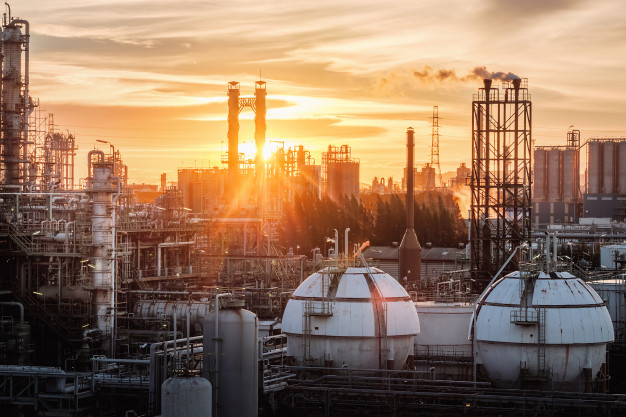
 2023-08-10
2023-08-10
Some articles published in this news column are from the Internet, and the purpose of reprinting is to convey industry news and information sharing. The article does not mean that this column agrees with its views and is responsible for its authenticity, nor does it constitute any other suggestions. If you find any works on the website that infringe your intellectual property rights, please contact us and we will modify or delete them in time.
Recently, the second meeting of the Central Committee for Comprehensively Deepening Reform deliberated and adopted the "Implementation Opinions on Further Deepening the Reform of the Oil and Gas Market System and Improving the National Oil and Gas Security Capability", pointing out that it is necessary to actively and steadily promote the reform of the upstream, middle and downstream systems and mechanisms of the oil and gas industry around the goal of improving the national oil and gas security capability and in view of the outstanding problems existing in the oil and gas system to ensure stable and reliable supply.
Energy security is a major strategic issue related to national security and national interests. In China, the contradiction of energy security is highlighted in oil and gas security. From transportation and industry to residents' heating, oil and gas supply affects all aspects of economy and society. Besides being widely used as fuel, petroleum and natural gas are the basis of chemical industry, providing raw materials for many kinds of commodities such as plastics, fertilizers, cosmetics, medicines and textiles. Whether stable and affordable oil and gas supply can be obtained directly affects the global competitiveness of China's manufacturing industry, domestic industrial production and residents' lives. Considering that the dependence of China's oil and natural gas on foreign countries is as high as 70% and 40% respectively, the problem of oil and gas supply must be highly valued.
Under the goal of "double carbon", compared with other commodities, oil and gas prices will fluctuate greatly for a long time, which has become one of the biggest uncertainties in global economic development. With the deepening of China's industrialization and urbanization, energy demand will continue to grow rapidly in the future, and more attention should be paid to the utilization of oil and natural gas.

Although China's energy endowment is "short of oil and gas", from the perspective of resource conditions, there is still great potential for increasing oil and gas storage and production in the future. In terms of oil, in the past three years, the proven geological reserves of new crude oil in China have exceeded 1 billion tons, and this scale is expected to continue; In terms of natural gas, China is rich in unconventional natural gas resources such as coalbed methane and shale gas, which has good exploration and development prospects. In the past five years, the proportion of unconventional natural gas (shale gas, coalbed methane) production in the total national natural gas production has increased from less than 7% to about 14%, and the proportion has doubled. With the continuous expansion of exploration and development and the progress of engineering technology, the output and economy of unconventional natural gas are expected to continue to improve. If reasonable guidance and development are given, it is expected to alleviate the relative shortage of high-quality fossil energy resources in China.
Deepening the reform of oil and gas marketization is an important means to promote oil and gas exploration and development and increase reserves and production. With the deepening of market economy, it has become an inevitable trend to liberalize energy prices, break market monopoly and restore the commodity attributes of energy. After years of exploration and innovation, China's oil and gas exploration and development market has been liberalized in an orderly manner, and the reform of oil and gas pipeline network operation mechanism has made key progress, but it still cannot keep up with the pace of energy transformation and reform. Under the goal of "double carbon", how to organize the market well and allocate oil and gas resources reasonably and efficiently is particularly urgent. Only by giving full play to the basic role of the market can we fully mobilize the enthusiasm of various business entities and comprehensively enhance the oil and gas supply capacity.
Deepening the reform of oil and gas system and mechanism is unshakable. Efforts should be made to crack the institutional and institutional obstacles that affect the healthy development of the oil and gas industry and give play to the decisive role of the market in the allocation of oil and gas resources. Deepen the reform of the operation mechanism of oil and gas pipeline network, open competitive links in an orderly manner, encourage all kinds of capital to enter the field of oil and gas infrastructure construction and utilization, and clarify the responsibility of new entrants to ensure supply. Make full use of market-oriented means, mobilize the enthusiasm of upstream investment in oil and gas, and increase domestic oil and gas exploration and development and increase reserves and production. Resolutely support the bottom in the field of oil and gas resources and ensure the core demand of domestic oil and gas.
As a big importer of oil and gas, China should also put the construction of oil and gas reserve system in the same important position as the investment in oil and gas exploration and development, strengthen the construction of production, supply, storage and marketing system, deepen the reform of oil and gas reserve system, and accelerate the formation of an oil and gas reserve system that combines government reserves, corporate social responsibility reserves and production and operation inventories, complements each other, and combines physical reserves, production reserves and other reserve methods. Give full play to the emergency and adjustment capabilities of reserves, and take multiple measures to deal with possible fluctuations in international oil and gas supply and prices.